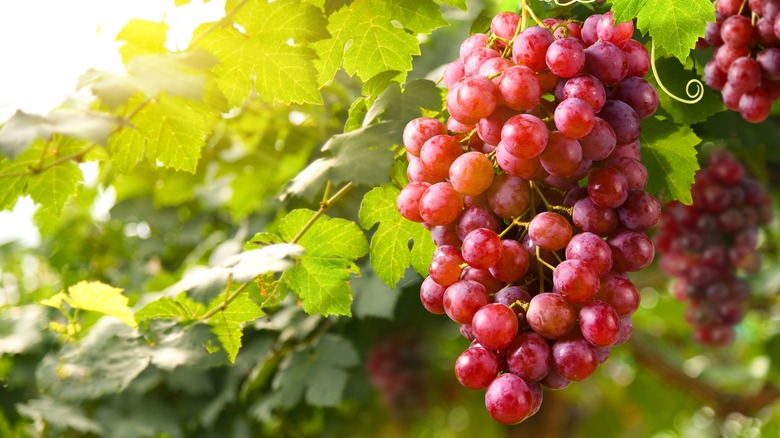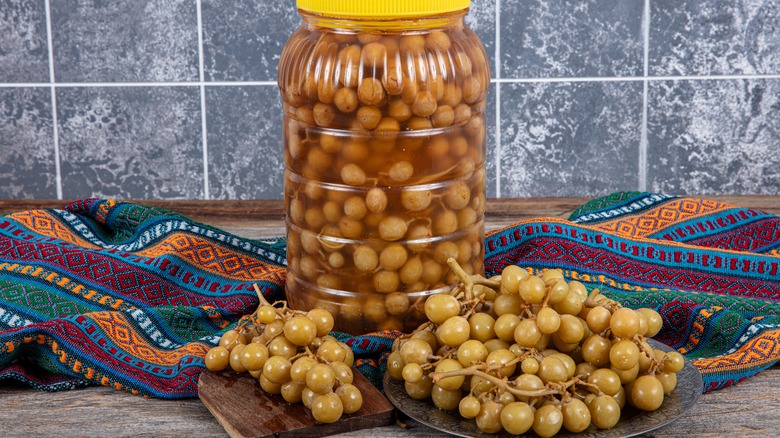The Sweet Ingredient You Should Be Pickling
From a plastic package in a gas station to the tables of the French Laundry, pickles pop up just about everywhere. But while, to most, they live in the realm of savory dishes, perfectly accompanying charcuterie or sitting pretty in an English cheese and pickle sandwich, they're far more versatile than you might realize. For one, sweet pickles can be a game-changing addition, particularly pickled fruit. And of all the potential pickles out there, grapes are one you should be giving a go.
Pickling grapes is shockingly simple, and leaves you with delicious little depth charges of flavor, exploding with tangy sweetness and delivering just the right balance of sugar, salt, and crunch. The acidic hit of pickling opens up grapes' naturally tannic quality, adding subtle warmth while retaining their refreshing kick, taking all their inherent qualities to new heights while imparting new spice-forward, sour notes.
They make for delicious snacks on their own or as a gorgeous addition to either sweet or savory dishes. You can pair them with fresh ricotta to take your toast to the next level or use them to add a fruity pop to a curried chicken salad with Greek yogurt.
Here's how to make them
Pickling grapes is really very easy — all it takes is water, sugar, vinegar, and salt to make a basic refrigerator pickle. Prep work will be pretty minimal, too: All you need to do is wash and de-stem your grapes (if you slice them in half, even better; you'll get a much stronger infusion of the brine into the fruit).
From there, the world is your oyster. Whatever aromatics you choose to add to your pickle brine will imbue those grapes with different qualities, so there's room for an awful lot of creativity. Using cloves, for example, will bring out a warm, earthy quality, playing on those tannins (especially in red grapes) and darkening their flavor, producing an almost wine-like profile. That hint of red wine will be brought out even more by the addition of dried fruits, like cherries or currants, and peppercorns, which will add a touch of heat to the mix. Then of course, using red wine vinegar as your acid would really be the cherry (or grape) on the cake.
You can take things in a different direction, choosing to bring out brighter, more vegetal and herbaceous notes — a ploy that'll be particularly effective with white grapes, which are naturally brighter and milder than their red counterparts. Here, you could experiment with fresh herbs like dill, or even citrus flavors in the form of lemon or orange peel, for some bright, summery zing.


